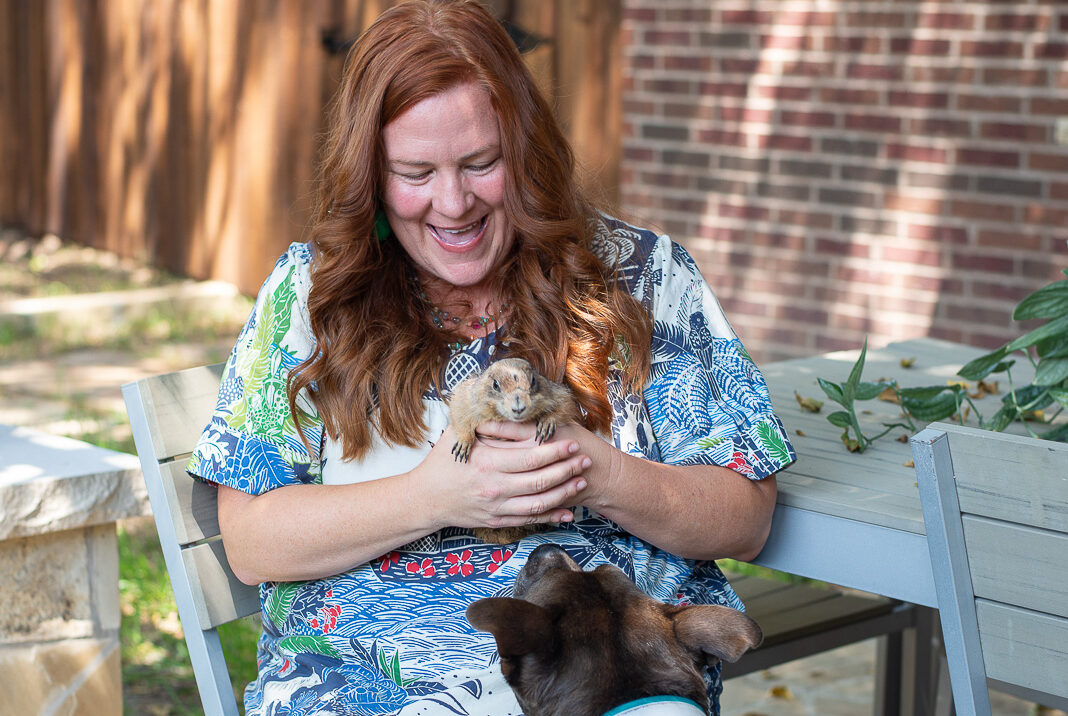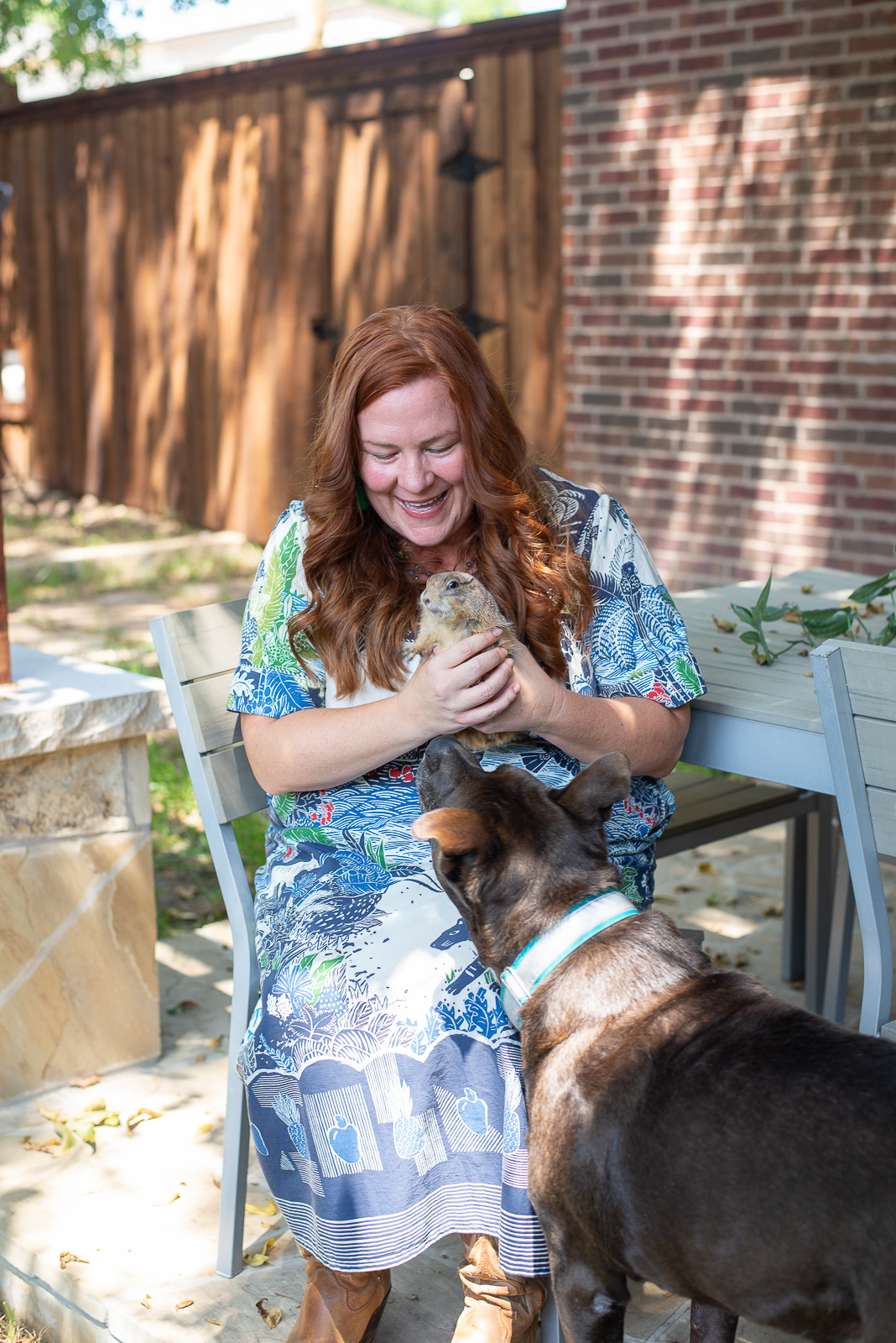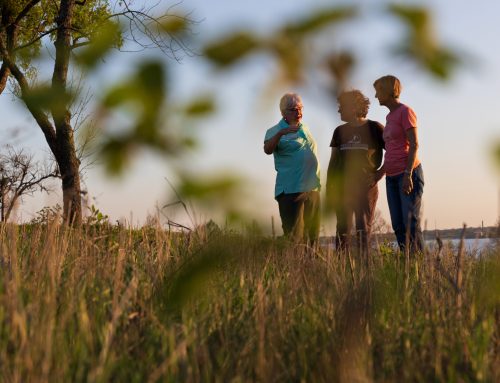Even though she has one, Lakewood neighbor Shelby Bobosky is the first to say prairie dogs should not be pets.
They’re wild animals, she says.
But unlike other members of her species, Emily the prairie dog gets to spend her days running in her wheel, exploring the Boboskys’ backyard and munching on rodent pellets and Timothy hay.
Emily and another prairie dog who has since died, Peter, came to the Boboskys through the Houston Humane Society. They were both rescued in an animal cruelty seizure.
“She has fit so nicely into our home, and so did Peter,” Bobosky says. “She’s so fun.”
In addition to Emily, the Boboskys have two rescue dogs, Fern and Isles.
“I’m the dog lady,” she says. “I’m constantly walking my dogs.”
Bobosky, who has had 12 pets throughout her life, is not just an animal lover. She’s an animal advocate.
In 2009, she volunteered to help her law firm with a case involving a puppy mill raid in Kaufman County. One person was responsible for more than 500 dogs, but the animals weren’t receiving sufficient care, such as food, water or shelter.
“I thought, how was this legal? And it was because there was no regulation against that kind of treatment of dogs in large-scale breeding facilities,” she says.
Though at the time she was on the animal welfare committee for the Dallas Association of Young Lawyers, she had no experience practicing animal law. But that incident in 2009 made her question how she, as an attorney, could make a difference for animals.
Two years later, wanting to spend more time with her three sons while still putting her legal skills to work, she left her full-time job and joined the Texas Humane Legislation Network as a volunteer board member.
In 2019, she became executive director of the organization. Its mission is to promote the humane treatment of animals through legislation and advocacy.
Every two years, Bobosky and colleagues go to Austin and try to convince legislators to pass bills that will be beneficial to animals and kill bills that won’t.
Here’s an example. Up until 2013, it was legal in Texas to euthanize dogs and cats using a gas chamber. According to the Humane Society of the United States, it takes minutes for animals to lose consciousness inside a gas chamber, compared to seconds if a trained technician induces euthanasia drugs. And if the chamber is old or not well-calibrated, or if the animal is especially young, old, ill, stressed or placed in the chamber with other animals, it can take much longer for animals to lose consciousness. Thanks to Bobosky and the THLN, there’s a law against it.

In October 2021, Gov. Greg Abbott signed into law the Safe Outdoor Dogs Act, which requires that if dogs are tied up outside and left unattended, they have to be given water, shade, shelter and enough room to avoid standing in water or animal waste. The bill also requires dogs to have protection from the elements, a collar that fits and shelter that allows them to turn around and lie down. It prohibits dogs from being restrained with a chain, a restraint with weights attached or a restraint that’s too short.
Getting the law on the books was no walk in the park. Earlier in 2021, Abbott had vetoed a different version of the legislation, saying, “Texas is no place for micro-managing and over-criminalization.”
There was opposition from many groups, and crafting legislation enforceable across the state took time.
“It was the hardest bill that we have ever passed,” Bobosky says. “I’m very proud of that because the No. 1 problem throughout Texas is dogs on chains, just languishing in the sun.”
She’s also lobbied at the national level. Not long ago, Bobosky found herself in U.S. Senator Ted Cruz’s office with animal welfare activist Carole Baskin, advocating for the Big Cat Public Safety Act.
Closer to home, Bobosky advocates for furry friends as chair of Dallas’ Animal Advisory Commission. She and her fellow board members meet several times each year with the director of Dallas Animal Services to discuss issues, receive status updates and learn how they can assist the shelter.
“I just always ask people to support our local shelters because they need it, and it’s a very, very difficult job,” Bobosky says.
About seven years ago, she decided to share her knowledge with the next generation of attorneys. Students at SMU’s law school can enroll in Bobosky’s classes on animal law and wildlife law.
In the discussion-based courses, Bobosky covers topics including pet deposits and pet rent, animal cruelty, the link between interpersonal violence and animal abuse, climate change and wildfires.
There’s still more to be done when it comes to caring for animals, Bobosky says. But responsible pet ownership is a good place to start. Spaying and neutering pets can help mitigate overpopulation in shelters, and keeping dogs on leashes can help prevent dog bites.
But she’s reassured by the East Dallas community.
Several years ago, Bobosky was fostering a dog named Mahala, who was found as a 6-month-old puppy, having never encountered people.
One afternoon, Bobosky was taking Mahala for a walk on the Santa Fe Trail. A bus drove by and made a noise that scared Mahala, who escaped and ran.
Seven people had volunteered to search for the dog by the end of the night, and they found her.
“Random strangers that I had never met before stopped everything they were doing that night to help me find this amazing dog that now has a great life in New York,” Bobosky says. “But it could have really turned poorly if those people didn’t stop and help.”







